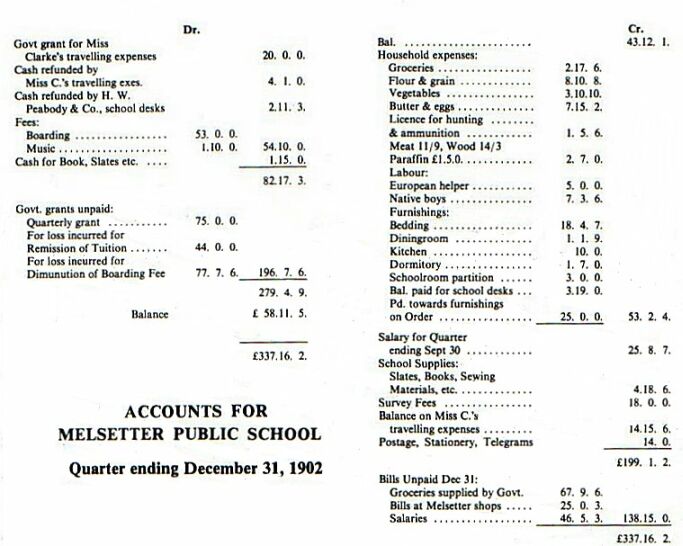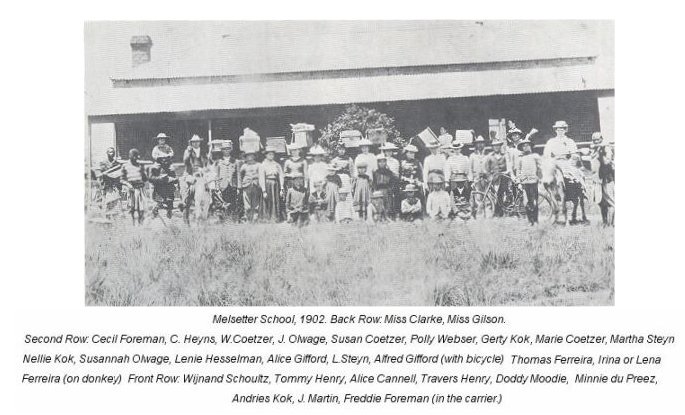|
The Secretary for
Agriculture wrote that he thought the disease in Melsetter was red-water, but in
consequence of doubts locally expressed he asked that the doctor, who would know
the process, should take blood from superficial veins of ear or nose of
certainly infected animals, after washing the parts quite clean, and send the
films for examination. No result was reported, but there was no doubt that
A.C.F. had reached Melsetter. Farming came to a standstill and the settlers
were practically ruined through the enormous losses of cattle. Road traffic was
suspended in March and necessary supplies became exceedingly expensive and the
cost of housekeeping was proportionately increased and trade was practically at
a standstill. The absence of milk was felt very seriously. It had also been an
unprecedentedly dry season and crops were a partial failure, and lions, leopards
and wild dogs � the latter in packs up to SO strong � had taken their toll. The
distress was so great that the Government had to send in provisions, and when
Martin applied for assistance in getting wire netting from Umtali he was asked
what the weight would be as the Transport Department was experiencing great
difficulties in getting food to Melsetter. A farmer applied for permission to
destroy certain eland which were mixing with his healthy isolated cattle, and in
reply the Agricultural Department said that there was no proof that eland
contracted redwater and in that case ticks dropped from them were not
infectious, so the desired authority could not be recommended. Local remedies
were tried in the efforts to find a cure, and Longden sent a messenger to
Umtali, at the usual price of 10/- for the trip, with roots and leaves alleged
to be a native remedy for redwater. In spite of the concessions few parents found it
possible to pay the tuition and boarding fees, and in June the Managers said
they were unable to do more than they were doing and that Government assistance
was essential in order to increase the attendance. In August it was announced
that, for one term only, no tuition fees would be charged and the boarding fee
would be reduced to �2.10, and the Government undertook to make good to the
Managers any loss incurred by the remission of tuition fees and the diminution
of boarding fees, and gave them permission to buy provisions for the boarders at
cost price from the supplies sent to Melsetter to relieve distress. In October
Miss Gilson asked for the grant to be continued for at least another term as,
notwithstanding all that was being done, the educational problems were not
solved. �2.10 covered all expense except clothing for the term of thirteen
weeks, yet many people claimed that they could not pay this amount, and more
than two-thirds of the children were growing up in ignorance. The school
hours were from 9 till 11 and from 2 to 5, and the following year was in session
four and half hours each day, besides one hour of sewing and one hour of
domestic economy for the girls, one hour of industrial training for the boys and
one half-hour of instruction in the evening. Out of school hours Miss Gilson
kept the children occupied in planting mealies and vegetables with a view to
making the school self-supporting. Postal
arrangements continued to be unsatisfactory. Mails took 3� da9s from Umtali,
less than 80 miles by the rdute the postboys took. Runners made the whole
journey without a break and consequently travelled very slowly and after a few
journeys became footsore which necessitated the frequent engagement of fresh
boys. Tom Brent, for Meikle Brothers, completed a road to Uitkyk, for which
the Government paid for the labour and lent two portable forges and a small
anvil, which Brent promised to return to Melsetter as soon as transport was
obtainable. Public events included the establishment of the Cricket Club, the
building of a second tennis court, and the celebration of the coronation of
Edward VII and Queen Mary with two public holidays and an official church
service on Coronation Day. Longden made enquiries on behalf of George
Willows, an enterprising farmer who was desirous of obtaining special facilities
for the importation of sheep. Beira-Mashonaland Railways quoted their rates for
sheep as: from Gwelo to Salisbury 15/ 8d per head and from Salisbury to Umtali
14/ 2d per head, with a rebate of 25% allowed on complete wagonloads of
approximately 60 head. It is not1certain whether Willows imported any, but
gradually farmers were slowly acquiring sheep. The Rev.
Douglas Wood signed the lease for the Rusitu Mission land before Longden. He
compiled a brief chiNdau grammar and dictionary and wrote the first hymn in
chiNdau: Jesu wakandida (Jesus loves me). Raney brought his bride to Rusitu, and
the first local man, Timothy Chianguangu, was converted to
Christianity. |
 A female Burchell zebra ran alone on Fairfield for some time grazing
with the cattle, and one evening accompanied them into the kraal, where George
Heyns captured her and tied her up. He applied for permission to keep her and
Longden explained that the capture of the animals was practically a
contravention of the Game Ordinance, but he referred the request to the
Administrator saying that he assumed there would be no objection to her being
kept if Heyns domesticated her and if possible bred from her by crossing with a
horse or donkey: he had lent some donkeys with which she appeared desirous of
associating and asked for sanction for this move. Heyns was allowed to keep
A female Burchell zebra ran alone on Fairfield for some time grazing
with the cattle, and one evening accompanied them into the kraal, where George
Heyns captured her and tied her up. He applied for permission to keep her and
Longden explained that the capture of the animals was practically a
contravention of the Game Ordinance, but he referred the request to the
Administrator saying that he assumed there would be no objection to her being
kept if Heyns domesticated her and if possible bred from her by crossing with a
horse or donkey: he had lent some donkeys with which she appeared desirous of
associating and asked for sanction for this move. Heyns was allowed to keep



 In view of the depredations
amongst stock by wild animals farmers applied for permission to arm their native
herds with a rifle and ten rounds each, and the C.C. issued provisional permits
pending confirmation by the Administrator, but was told that His Honour was
averse to issues of rifles to natives under any circumstances.
In view of the depredations
amongst stock by wild animals farmers applied for permission to arm their native
herds with a rifle and ten rounds each, and the C.C. issued provisional permits
pending confirmation by the Administrator, but was told that His Honour was
averse to issues of rifles to natives under any circumstances.